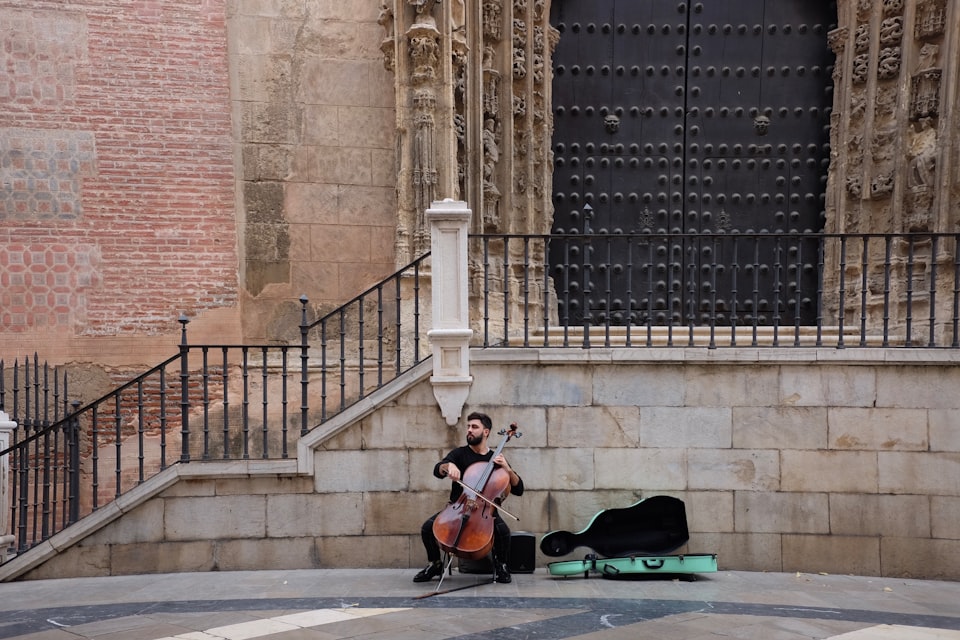Music & Melancholy

The emotive power of melody
Watch a movie without music. Ok, maybe don’t do that, but at least try watching a key scene. Like when Theoden leads the charge against Sauron’s army at Minas Tirith. Or in Gladiator, when Maximus dies after vanquishing Commodus, and is carried out of the Colosseum. These are among the most memorable scenes in cinematic history. But remove Howard Shore or Hans Zimmer, and they are almost banal.
Music has a profound ability to shape our experience of the world. The physical space around us can be identical, but the music mediates our engagement with it. And the effect comes upon us even if we don’t expect it. I’ll be mindlessly following the swaying movements of the maple outside my window when Itzhak Perlman’s famous solo from Schindler’s List plays on my speakers, and suddenly the tree becomes a symbol for longing in a broken world, a sign of life in a world shrouded in despair. Then comes Bach’s Prelude in C Major, and I am transported to a forest glade, and the waves of sunlight rippling over the leaves tell me I am in harmony with the world.
This life-colouring quality struck me recently as I was listening to a playlist on Spotify. Going about my normal work routine, I heard a tune that prompted me to stop. The melody was familiar, but this rendition was altogether new. The piece was Cid's Theme from Final Fantasy VII. The original is heroic and inspirational. Listening, I become the ambitious captain whose dream is to be the first person to enter outer space. But this rearrangement by TPR and Roxane Genot, despite containing the same notes, was steeped in melancholy. My heart sighed as I was wrapped in sorrow. From the rich, deep vibrato of the cello to the light touch of the upper registers of the piano, all I wanted was to sit, to absorb the somber melody into my bones and let it teach me to mourn.
Perhaps the most counterintuitive element of my listening experience was that I liked being sad. The music made me feel unmistakably human, not in spite of its melancholy, but because of it.. The feeling reminded me I was finite, yet still a deeply complex creature. This is an incredible power of music. Not only do I feel a certain way, the music creates a desire for that feeling. Because despite what the reductionists tell me, I know that music is more than sound waves colliding with my tympanic membrane and being transmitted to my auditory cortex. Music expresses what even language cannot convey, and it kindles our sense of a world beyond these physical borders, a realm of beauty and harmony.
I could not help but appreciate the artistic soul embedded in those notes. I used to play the cello myself, but I could not stir your inner life in a similar way. Because music is more than notes. Listen to a novice like myself, then listen to this opus, and you know the difference immediately. But the primary distinction on the part of the performer lies not in feeling but in skill. The feeling must express itself through the proper medium, and that includes the compositional arrangement and the artist's performance. I lack the ability for both. But being an amateur and one who has struggled in the craft, I can begin to appreciate the genius behind both. Many of the underlying subtleties, those nuances easily overlooked in a world oversaturated with entertainment, are what make it wonderful. We are surrounded by what is sensational and bright, a world that trades in emotive outbursts and brief attention. But in this performance, we are faced with artists whose emotive sensibilities are refined and laid before us with grace. It is more powerful because of it.
In a visual world, we underestimate the power of sound. Perhaps close listening—or watching movie clips on mute—can help recover appreciation for the aural world. Turn the sound back on, and it’s like expecting a mediocre cup of diner coffee but being delighted with the finest brew. This was true of Cid’s Theme, and my week was far richer for it. I think I’ll pick up playing my cello again.





Member discussion